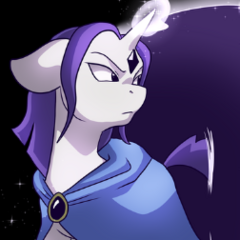"Head canon" is an oxymoron!
I hate when people use words incorrectly. The term "head canon" does not make any sense. "Canon" does not mean "back story." The word "canon" is used in the religious context to basically mean official. Using the term for fiction, such as a television show, means that something is officially recognized by the owner of the intellectual property. The only people who have the authority to make something canon are people who own the product, or who have been officially licensed to produce material for the product.
Anything created by fans that has not been officially sanctioned by the owners of the intellectual property is merely "fan fiction." Therefore, anything you come up with on your own cannot be canon. However, people use the term "head canon" when they should say "head back story." That term doesn't have the same ring to it, so perhaps a different term is more appropriate. Maybe something like "fan back story." In any case, canon does not mean back story. Stop using the word incorrectly.




7 Comments
Recommended Comments
Create an account or sign in to comment
You need to be a member in order to leave a comment
Create an account
Sign up for a new account in our community. It's easy!
Join the herd!Sign in
Already have an account? Sign in here.
Sign In Now